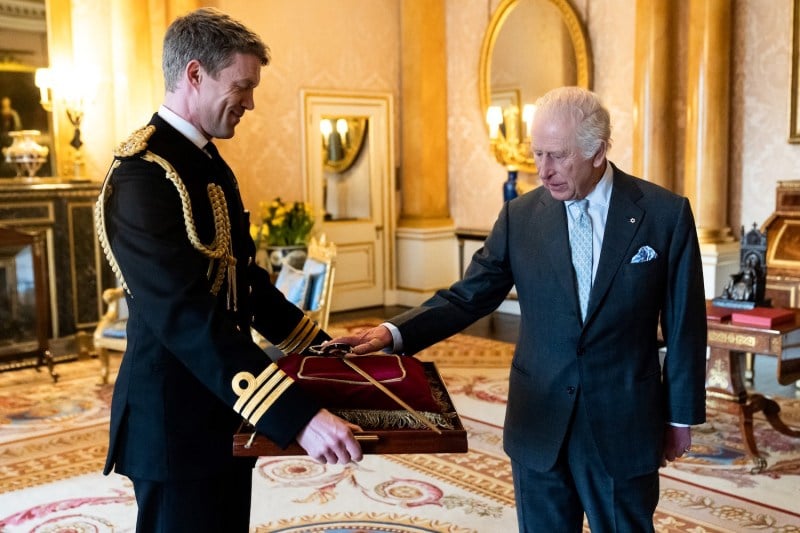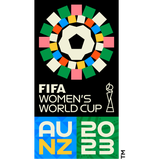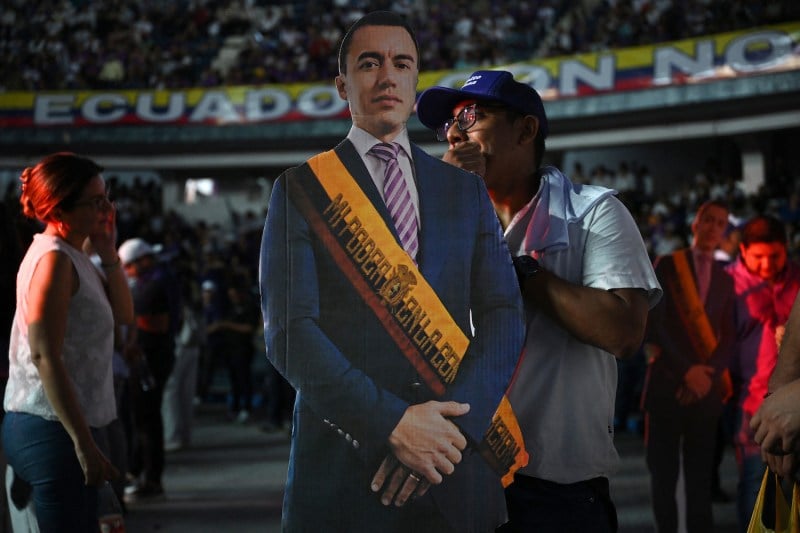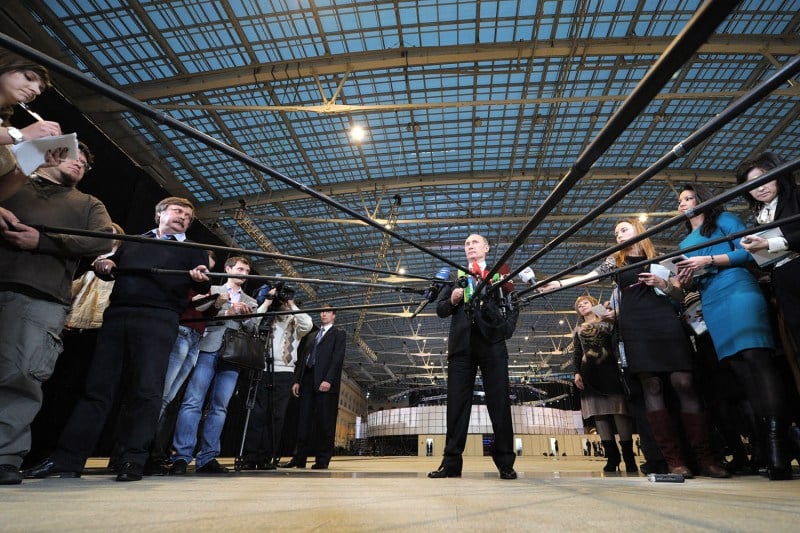Can the Commonwealth Save Canada?

Can the Commonwealth Save Canada?
The monarchy came to Ottawa’s defense when it faced previous U.S. threats.
King Charles III blesses a new ceremonial sword during an audience with a Canadian delegation at Buckingham Palace in London on March 12. Aaron Chown/AFP via Getty Images
This month, Canadian dignitaries visiting King Charles III in London received an unusual present: a ceremonial sword gilded with the monarch’s insignia. It was a fitting symbol of Canadian sovereignty when it has never been more in doubt.
Canada needs a lot more than a sword to protect it from its bellicose southern neighbor. U.S. President Donald Trump has made threatening his closest ally into a kind of sport, launching a damaging trade war and threatening to use economic force to annex the country of more than 40 million people as the “51st state.”
This month, Canadian dignitaries visiting King Charles III in London received an unusual present: a ceremonial sword gilded with the monarch’s insignia. It was a fitting symbol of Canadian sovereignty when it has never been more in doubt.
Canada needs a lot more than a sword to protect it from its bellicose southern neighbor. U.S. President Donald Trump has made threatening his closest ally into a kind of sport, launching a damaging trade war and threatening to use economic force to annex the country of more than 40 million people as the “51st state.”
Amid this crisis, a growing number of voices are asking why Charles—Canada’s official head of state—isn’t more vocal in defending the country. Even if his role is ceremonial, the king is a powerful example of what differentiates Canada from the United States. The monarchy is a unifying institution for many former British colonies, Canada included. Canada’s relationship with the crown dates back further than its long friendship with the United States.
Since the decline of the British Empire in the late 19th century, Canada has been among the leading advocates for the Commonwealth, a group of 56 countries that took its modern form in 1949. Charles remains the head of state of Canada and 14 other members—meaning that he holds a symbolic role as sovereign and stays above the fray of politics.
But as Ottawa’s ties to Washington fray, experts say that the monarchy could be increasingly valuable for Canadian foreign policy. It might provide the country the support it needs to survive U.S. hostility for the next four years—or longer.
“We have to rely on ourselves a lot more and rely on allies that we can really count on,” said Erin O’Toole, a former leader of Canada’s Conservative Party, “because—and I hate saying this as somebody who has served alongside Americans in uniform—it seems like they … won’t be that ally we can count on.”
Charles’s ceremonial sword gift was one of a few recent references to the king’s dominion over Canada. In just the last few weeks, he has donned Canadian medals on a high-profile military tour, planted a red maple tree on the grounds of Buckingham Palace, and held a private audience with then-Canadian Prime Minister Justin Trudeau to discuss Canada’s “sovereignty and … independence.”
Royal observers say that such gestures are the strongest actions anyone should expect from the crown in defense of Canada. “The king is wearing two hats—or two crowns, to be precise,” said Craig Prescott, a lecturer in constitutional law at Royal Holloway, University of London, and author of Modern Monarchy.
One might say that Charles is actually wearing 15 crowns, one for each of the realms where he acts as head of state. In Canada’s spat with the United States, the king can only offer symbolic resistance because his actions in this case cannot affect the foreign policies of the other governments that officially regard him as head of state, including the United Kingdom.
That means that “both [the United Kingdom and Canada] are cautious about using the king, and putting him in opposition to Trump, because both countries have their own relationships to America to maintain,” Prescott said.
But there are other ways Canada might use the monarchy to its advantage. The Commonwealth was conceived to encourage mutual trade and benefit among countries. Among its members are mineral and petroleum exporters such as Australia, Canada, and Nigeria; manufacturing juggernauts such as India, Malaysia, and Pakistan; and powerful service hubs such as the United Kingdom, and Caribbean countries. The Commonwealth’s combined GDP may soon even rival that of Europe.
But the Commonwealth has rarely lived up to its full potential, in part because not all of its members are created equal. The organization includes unstable democracies such as Fiji and Bangladesh and tiny microstates such as St. Kitts and Nevis and Vanuatu. Its member states are home to more than 2.7 billion people—one-third of the world’s population—but more than 30 members are among the world’s smallest states. Just six Commonwealth countries are considered developed nations.
This disparity, combined with the Commonwealth’s commitment to granting an equal voice to all states regardless of size or wealth, has rendered the group into primarily a “support network,” Prescott said. Its agreements are often toothless commitments to vague principles, such as guidelines on election management.
That has not always been the case. In the 1980s, the Commonwealth was a key force in ending apartheid in South Africa, a founding member that withdrew from the organization in 1961. Members banded together to agree on a common position of ostracizing the country. The organization became an important forum for resolving conflicts between Queen Elizabeth II’s responsibilities as head of state in the United Kingdom—which opposed sanctions on South Africa—and the rest of her realms, Prescott said. (South Africa rejoined the Commonwealth in 1994 after its democratic transition.)
Today, one might easily imagine coordinated activity among Commonwealth nations to offer support to Canada in its trade war with the United States, such as economic coordination on trade to make up for the impact of U.S. tariffs. But the Commonwealth “moves very slowly, if at all,” Prescott said. “It’s very difficult to have any sort of overriding purpose, because it’s hard to get such disparate nations to agree.”
Canada might focus on fostering certain “relationships within the Commonwealth,” rather than with all 55 other members, Prescott said. Take CANZUK, a theorized alliance between Canada, Australia, New Zealand, and the United Kingdom. The New Zealand historian William David McIntyre first proposed the idea in 1967, but interest grew after Brexit and Trump’s 2016 victory threatened to shake up the world order.
Such a bloc would present many of the benefits of the Commonwealth with few of the organization’s drawbacks. Together, the four countries have a GDP of $6.8 trillion and a near-monopoly on the world’s supply of key strategic minerals.
Unlike the Commonwealth as a whole, CANZUK nations are also closely aligned in their politics, social values, and legal institutions. Importantly, they also already collaborate on security, sharing intelligence in the Five Eyes alliance—from which Trump has threatened to withdraw the United States. Largely thanks to the United Kingdom’s military strength, Skinner said a CANZUK alliance could also create the world’s third-largest fighting force.
“It just makes sense for these countries to come together in this way,” said James Skinner, the founder and CEO of CANZUK International, an advocacy group for the alliance. For Skinner, a formal agreement would involve not only a military alliance and a free trade agreement, but also freedom of movement between countries, similar to that among European Union member states.
“It could be implemented quite easily,” O’Toole, the Conservative lawmaker, said. “We’re not creating something from scratch here. … When multilateralism is a bit of a bad word, we’re just trying to say that countries with shared interests and values should be doing more together.”
CANZUK advocates like O’Toole seem to have found a receptive audience in new Canadian Prime Minister Mark Carney, who spent his first week in office meeting with the king and signing military procurement deals with Australia. Carney has already spoken at length about the importance of Canada’s historic ties to the United Kingdom and France, with which it also has a colonial history.
The real question is how a new alliance might be received in Washington. “The Americans might be quite irked by that,” Skinner said. “They might say, ‘You aren’t respecting U.S. authority’—or supremacy, really.” He added: “I would hope they would see it as a complement to U.S. military operations. But it’s anyone’s guess these days.”
Until then, Canada may need to continue to rely on more symbolic forms of support from the monarchy. In the past, royal tours to Commonwealth realms have been one way to show strength in the face of foreign threats, Carolyn Harris, a Canadian royal historian, said.
The last time the United States doubted Canada’s sovereignty was during the Cold War, when the question of whether Canada had sovereignty over its Arctic waterways became a talking point in Washington. A U.S. oil tanker, the SS Manhattan, even transited Canada’s Northwest Passage in 1969 to bolster claims that the trading route should be treated as an international waterway. The next year, Canada’s government sent Queen Elizabeth II and her family to meet with Inuit communities to demonstrate that her dominion stretched to the Arctic Ocean.
In 1939, when Britain was under threat from Nazism, King George VI visited Washington—with Canadian officials in tow. It was a way of showing that the whole empire was still willing to answer the call to fight in defense of Britain in a time of U.S. isolationism.
Today, a royal tour to Canada might send a strong message that the monarchy and its allied realms won’t leave the country to be annexed by the United States. “If there is a royal tour of Canada in the next year, that may become the most significant in history,” Harris said.
But when Trump is the intended target of your message, it is anyone’s guess how he might react. O’Toole, who acted as Canada’s shadow minister for foreign affairs during Trump’s first term, confessed that the U.S. president’s talk of making Canada the 51st state surprised him. “We can’t ignore what’s happening,” O’Toole said. “We have to come up with ways to keep our citizens safe … and I think there’s strength in numbers.”
John Last is a Canadian freelance journalist and researcher based in Italy. He covers Arctic policy, European history, and politics around the globe. X: @johnwlast
More from Foreign Policy
-

Zelensky stands before four Ukrainian flags; cameras are pointed at him. It’s Time for Ukraine to Accept an Ugly Peace
Seven things for Zelensky to keep in mind as cease-fire negotiations start.
-

Then-presidential candidate Donald Trump speaks before a capacity crowd at a rally for his campaign on April 10, 2016 in Rochester, New York. Trump Is Not a Revolutionary
Not all political upheaval is created equal.
-

German soldiers unload the U.S.-made MIM-104 Patriot surface-to-air missile system in Jasionka, Poland. The Latest Russian Missile Is Bad News for NATO
Oreshnik is a different beast from its predecessors.
-

French Emperor Napoleon Bonaparte leads the final assault by the Imperial Guard before his defeat at the Battle of Waterloo in what is today Belgium, on June 18, 1815. The Cost of Ignoring Geopolitics
Like Napoleon and the Ming dynasty, Europe is paying the price for strategic blindness.








Join the Conversation
Commenting on this and other recent articles is just one benefit of a Foreign Policy subscription.
Already a subscriber?
.
Subscribe
Subscribe
View Comments
Join the Conversation
Join the conversation on this and other recent Foreign Policy articles when you subscribe now.
Subscribe
Subscribe
Not your account?
View Comments
Join the Conversation
Please follow our comment guidelines, stay on topic, and be civil, courteous, and respectful of others’ beliefs.
Change your username |
Log out
Change your username:
CANCEL
Confirm your username to get started.
The default username below has been generated using the first name and last initial on your FP subscriber account. Usernames may be updated at any time and must not contain inappropriate or offensive language.